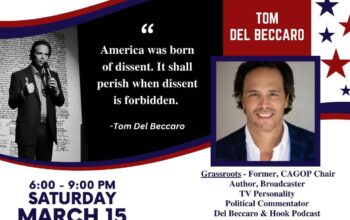We knew this would happen. Allow prostitutes to freely roam the streets and without fear of punishment, the numbers will explode.
“She claims passage of the controversial legislation, even before the governor’s signature, has led to an increase in pimping and pandering on the streets of California.
The numbers have doubled, Powell said, “not only in terms of the girls walking the streets for the purposes of prostitution, but also the sex buyers that were circling the blocks. Because remember, when the bill passed, it also said that if you are a sex buyer, and you are loitering in an area for prostitution, that’s legal too.”
Democrats love criminals—just look at the Open Borders and the criminals Biden allows in. California has become a paradise for criminals.
New California Law Decriminalizing Loitering Led to ‘Explosion’ in Prostitution

by JW August, Times of San Diego, 4/10/22
The pimps in California thought Senate Bill 357 was going to legalize prostitution in the state.
“That was their perception” said Stephany Powell, director of law enforcement training at the National Center on Sexual Exploitation in Washington.
She claims passage of the controversial legislation, even before the governor’s signature, has led to an increase in pimping and pandering on the streets of California.
The numbers have doubled, Powell said, “not only in terms of the girls walking the streets for the purposes of prostitution, but also the sex buyers that were circling the blocks. Because remember, when the bill passed, it also said that if you are a sex buyer, and you are loitering in an area for prostitution, that’s legal too.”
The legislation, which went into effect in January, didn’t legalize prostitution as rumored on the streets. It just repealed misdemeanor loitering laws targeting prostitution, prohibiting police from citing people suspected of soliciting sex based purely on appearance.
With loitering no longer a crime, officers on the street can no longer investigate a person who is loitering, even if they suspect someone of being exploited or being under age.
And that is a problem, said Powell, a former Los Angeles police officer of 30 years before becoming a supervisor fighting human trafficking on the streets of Los Angeles.
“The people that the bill was trying to protect, it has not protected them. It’s made it worse,” she said. “They said that it keeps people of color, transgender community, LGBT, LGBTQ community, from being harassed and arrested unnecessarily.”
Another critic of the legislation, Greg Burt of the California Family Council, said that “since SB 357 passed, we’ve had an explosion of street trafficking, the most dangerous type of prostitution. Demand is going through the roof.”
He has been involved in organizing efforts by dozens of organizations across the state involved in fighting trafficking and supporting the victims of the crime. They were part of the effort to try to kill the original legislation but failed.
Opposing them is a major player in anti-trafficking efforts in Los Angeles and elsewhere –the Coalition to Abolish Slavery and Trafficking, or CAST.
SB 357 is considered by proponents and opponents as a possible forerunner to legalizing prostitution in California. “I buy into the belief that this was the first step with the end result of wanting to have full decriminalization of prostitution,” said Powers. Burt adds there is “a lot of money out there to advocate for legalization by professional lobbyists.”
Gov. Gavin Newsom signed the bill after some delay, pushed by its author, Democratic Sen. Scott Wiener of San Francisco. Weiner argued that laws are used to harass marginalized people, and the bill’s passage would lead to less discrimination from police, protecting the LGBTQ and transgender community. It was sold as the “Safer Streets For All Act” by Wiener, as well as his supporters, including the ACLU, sex workers and CAST.



